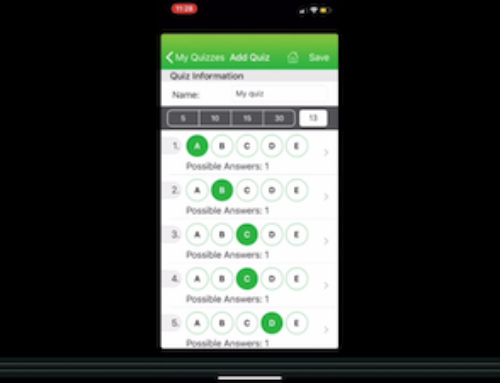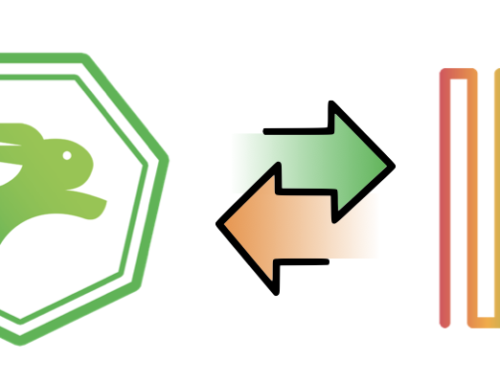Our Spotlight on Outstanding Teachers
Today: Thomas Rogers, H.S. Social Studies and English Language Arts Teacher
What do teachers make? They make a difference! Teachers are the most important part of what we do at DBE. But let’s get real! Teachers are some of the most important people in our society…period!
Meet the Champions shines a spotlight on outstanding teachers, and how they make a difference. Right here on the Quick Key Blog, we will be interviewing real working teachers from around the globe, who make a difference in their classrooms every day.
_________________________________
Thomas Rogers is a second year high school teacher from Alberta, Canada. He is a graduate of The University of Alberta and was recently selected to serve as an English 30-1 Diploma Exam Marker for the Department of Education in Alberta.
Thomas has a strong belief in “life long learning” and encourages his students to take full advantage of their educational opportunities.
He is passionate about using technology in the classroom and goes above and beyond for his students, to ensure that they are grasping concepts and moving forward in their learning.
So, without further ado…let’s meet a champion!
DBE: Why did you choose to become a teacher?
TR: I had the unique opportunity in Grade 11 to do a TA job through work experience. At my high school there was a Grade 7-9 combined computer class and the teacher they had assigned to teach it, while an awesome individual, was not confident in the material. So, I was approached, having spares in my schedule at that time, to help teach it. I was offered 15 credits toward my High School diploma and gladly took the opportunity. After a semester of doing this, I was hooked. I loved helping people learn new information and I felt that this was something I could do for a career.
DBE: What is the biggest highlight from your classroom this year?
TR: My biggest highlight was actually an opportunity to go mark government level diploma exams. In Alberta, a student must write a Diploma Exam for every core class they take. Some of these exams are marked by machine scored cards, some are essay style questions that are marked by teachers from all over the province. On average there are 16,000 of these exams written every session per subject.
To mark these exams the Province hand-picks a group of teachers from all over the province and brings them in to mark these exams. I was one of those people and it was an amazing experience. Working side by side with teachers with over 30 years of experience and collaborating with them was some of the best personal development I could have asked for as an educator.
DBE: Tell us about a teacher who inspired you. How did they do it? What made them great?
TR: One teacher that inspired me the most in terms of how I teach was my High School Physics and Chemistry teacher. He was a geologist before moving into the classroom and he had the right mix. The mix I’m talking about is between professional and life-long learner. He set high expectations for us and never compromised them.
He also had a great sense of humor and knew how to read the class and catered his instruction towards our interests, as much as, the curriculum would allow. That is not to say he didn’t throw down the hammer once and a while, but he never relied on it and because of that, we respected the man.
DBE: How is your profession changing?
TR: Teaching is an interesting profession in the sense that as much as it changes, it stays the same. The physical classroom hasn’t changed much in the last 200 years. Sure, we have technological advancements that allow us to take our education farther than we were able to in the past, but that doesn’t mean anything unless it is adopted by those who teach. That being said I know teachers that can engage their students more with just themselves than any YouTube video.
With the advent of the Internet, teachers must be more knowledgeable to compete with the information easily accessed by students and be able to guide them through what they find, and teach critical thinking. This idea of critical thinking is the most significant shift in education in my opinion.
Education used to be strictly knowledge adoption but now with an overabundance of digital information, it is more important to know HOW to process discovered information than raw memorization. Teaching students how to differentiate reliable information from the unreliable is going to be the most important skill we teach our students.
DBE: What is really hard about teaching, and how do you deal with it?
TR: The hardest thing about teaching is engaging your students. Each group of students is different… the outside world may think we as a profession just reuse our material on a year-to-year basis. In truth there may indeed be some that do this, but they I would argue do not make up the best of our profession.
Each group of students is different and has a different view on what they want to get out of life and school. Granted you have an obligation to teach them a mandated curriculum and are held accountable to do so, but there is wiggle room to meet the students half-way. If you can do this and engage your students in the material you are presenting, then other issues such as grades, classroom management, respect are easily dealt with once you have them.
So how do you engage students? You be a real person and a real professional. Students can see through your disguises and they are incredibly perceptive! So, don’t waste your energy trying to be someone you’re not as cliché as that may sound. Have a genuine passion for what you teach and they will follow you.
DBE: Thanks Thomas!




